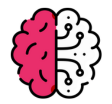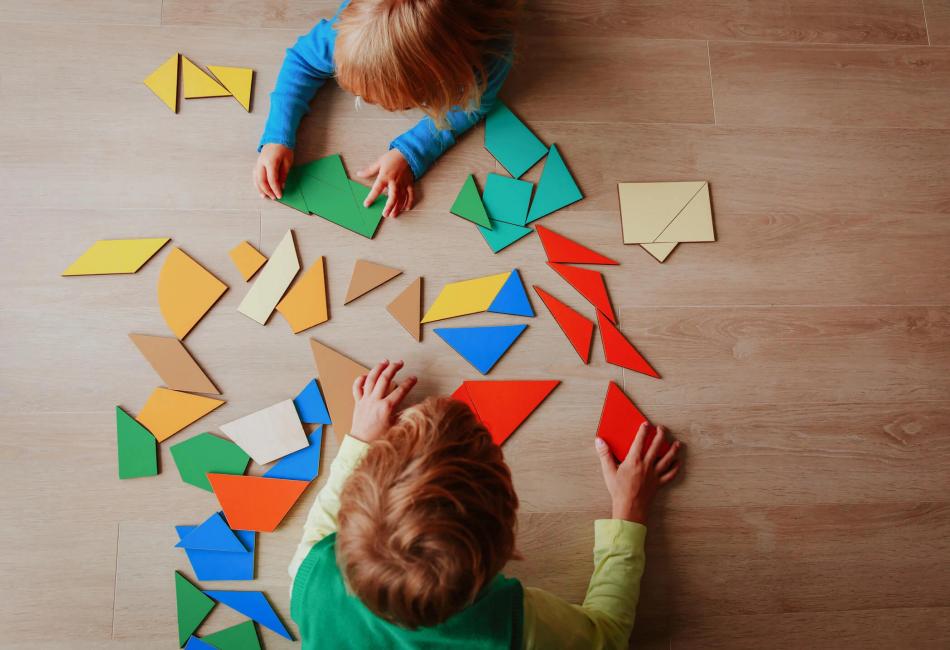Hoping to find a fun way to help children get excited about numbers and using numbers to solve problems? Math riddles for kids are a way to use your child’s ability to apply logic and math, to become a great problem solver, and to have fun while doing it. These witty puzzles combine humor, curiosity, and number-crunching practice to build kids’ confidence in math—and have fun at the same time!
In this extensive article, I want to introduce and discuss math riddles, present a brief taxonomy of riddles, and provide 49 math riddles (including the “classic” example) for students to try. Whether you are a parent, teacher, or simply an individual who wants to challenge a bright young mind, math puzzles for kids are a great resource.
What Is the Definition of Math Riddles for Kids?
What are Math Riddles for Kids? Math riddles are fun problem-solving questions that help children with basic math skills. In contrast to the math problems kids see every day, riddles introduce new aspects of language, logic, and situation that engage the minds of children while alleviating any potential fear of math.
That might mean anything from basic arithmetic brain teasers to more intricate logic problems, but they’ve all been created with a sense of play that’ll keep kids intrigued and engaged.
What Is The Point of Math Riddles for Kids?
Teaching children mathematics by way of riddles offers a host of cognitive and emotional benefits:
Makes Math Fun
Kids math riddles turn math and numbers into a fun and stimulating game shrinking your child’s fear of numbers and offering them an unparalleled level of enjoyment.
Improves Problem-Solving Skills
Riddles are dynamite for logic, critical thinking, and creative problem-solving.
Boosts Reading and Comprehension
Because many riddles are in the form of words, kids get exercise not only in decoding and interpreting language but also in drawing meaning out of words as they search for the math problem nested in the riddle.
Encourages Persistence
Math riddles encourage kids to use various strategies to make sense of what they’ve learned and to not (read: never) give up — a great lesson to accompany any academic subject matter.
Perfect for Group Activities
In both classroom settings and family gatherings, math riddles promote teamwork, discussion, and collaboration.
Funny Math Riddles with Answers for Kids
One of the surest ways to ensure that your kids remain challenged and motivated is by providing them with math riddles for kids with answers. By including answers, children can not only check their work but also see the reasoning behind each solution. This type of riddle allows a child to experience success and learning, particularly when the math concept is revealed with a clever twist or hidden. Whether in a school or home setting, math riddles with answers for kids serve as an effective medium to get children eager to learn more and more about maths.

Math Puzzles with Answers for Kids
Educators and parents are regularly looking for riddles for children that are simple to understand, and fun for children to apply logic. Great Riddles for Practice. These are great riddles for kids to practice critical thinking and problem solving because they will get immediate feedback on whether how did. The response is a teachable moment for children to correct errors and further develop number reasoning. From simple addition to logic-based puzzles, these math riddles will have you dusting off your abacus and pounding your head against the wall!
Fun Math Riddles for Kids
Fun math riddles for kids ask them to solve puzzles no matter how old they are and make learning math fun with these engaging and interesting activities. These puzzles frequently employ puns and wacky scenarios that make problem solving fun. For instance, “What is the weirdest number?” with this answer as the result, it’s naturally inclined to figure out “Y.”) Those playful challenges encourage good vibes about learning while making kids more open to math concepts (they may not even realize they are doing math).
Easy Math Riddles for Kids
For young kids or beginners, using easy math riddles for kids is a great way to help them feel more comfortable with equations. These riddles are pretty simple and frequently consist of a simple arithmetic problem or everyday items, but it’s the ease of the riddles that’s the appeal and we’re sure the kids will absolutely love them. Simple riddles teach students not only early math concepts, but also how to dive into more challenging ones in the future. They are incredibly beneficial in early childhood environments that belie the continuum of fun and simplicity of learning.
Read Also: Type a Riddle and Get the Answer
Kids Ages 5–8 Will Love These Fun and Easy Math Riddles
Some easy and fun math riddles for elementary kids:
- What has a face and two hands but no arms or legs?
Answer: A clock. - If you have 5 apples and you take away 3, how many do you have?
Answer: 3 (if you are religious you took them). - I am an odd number. “Remove one and I’m not odd anymore.” What am I?
Answer: Seven (take out the “s” to get “even’’). - What’s the circle with the most sides?
Answer: Two, inside and out! - If a hen and a half lays an egg and a half in a day and a half, how many eggs can three hens lay in three days?
Answer: 12 eggs.
More Intermediate Math Riddles for Kids (Ages 9–12)
- I add five to nine and I get two. This answer is right but why?
Answer: It’s a clock—9 AM plus 5 hours gives you 2 PM. - What three numbers will be the same when they are added and multiplied?
Solution: 1, 2, 3 (1+2+3 = 6 and 1×2×3 = 6). - A grandmother, two mothers and two daughters all attended a movie together and everyone bought one ticket. How many tickets did they purchase?
Answer: Three. - What is that number which is missing here? 2, 4, 8, 16, __, 64
Answer: 32. - I am 10 to 20. I am a number. You can divide me into two parts that are both multiples of 3. What am I?
Answer: 12.
Challenging Word Problems for Adults: Tricky Brain Teasers for Ages 18+
- Two days before the day before tomorrow is Saturday. What day is it today?
Answer: Friday. - You have 10 fingers on your two hands. How many fingers have 10 people got?
Answer: 100 fingers. - If you have 4 apples and you take away 3, how many do you have?
Answer: Three—you took them! - I am a number. Multiply me by 4, then divide me by 8, and you will have me again. What am I?
Answer: 2. - What can you have between 7 and 8 that makes 7 more than 8 but 8 less than 7?
Answer: A decimal point (7.8).
Read Also: Crime Riddles
Math Riddles and Their Use in Learning
Environments

In Classrooms
- Give them in advance as warm-ups.
- Use them in teams for friendly competition.
- Include riddles in homework or centers.
At Home
- Make it a before-bed or dinner-time activity.
- Use math riddle books or flashcards while traveling.
- Provide praise or rewards for correct answers.
In Online Learning
- Share riddles via platforms like Zoom.
- Use riddles in Google Forms or Kahoots.
- Include them in educational apps or games.
How to Make Your Own Math Riddles for Children
Encourage kids to make their own math riddles! Here’s how:
- Select a Math Topic – Add, multiply, divide, fractions, shapes, etc.
- Put Your Own Spin on It – Include a pun or unexpected logic.
- Try It Yourself – Let someone else solve it.
- Proof the Clues – Keep it clear but tricky.
Example:
“I’m shaped like a pizza and have no corners. What am I?”
Answer: A circle.
100 Math Riddles for All Ages – Math Topics
Geometry Riddles
- I have 3 sides and three angles. What shape am I?
Answer: Triangle. - What shape has round no corners?
Answer: Circle.
Addition/Subtraction Riddles
- You add me to myself and then you add 10 and you get 30. What number am I?
Answer: 10.
Multiplication Riddles
- I’m a number. Leave it to me to find something I don’t like about myself! What am I?
Answer: 0. - What is the product of all numbers from 1 to 0?
Answer: 0.
Time Riddles
- What happens twice in a second, once in a minute, but never in an hour?
Answer: The letter “m”.
6 Amazing Advantages of Math Riddles for Kids on Brain Development
- Bold Moves – Makes the brain think outside the box.
- Creativity – Encourages imaginative thinking.
- Memory Recall – Strengthens math rule retention.
- Language Development – Improves vocabulary and comprehension.
- Building Confidence – Kids feel proud solving riddles.
Print and Go and Digital Math Riddles
Resources:
- Printable Worksheets – Education.com and Math-Drills.com
- Math Riddle Books – Mind-Bending Math Riddles, Math Jokes 4 Mathy Folks
- Apps and Games – Prodigy, BrainPOP, Kahoot
- YouTube Channels – Explore math riddle videos online
Read Also: Tricky Riddles with Answers
Math Riddle Questions and Answers for Kids
Q1: What are math puzzles for kids?
A: Math riddles for kids are amusing, logic-based challenges that use patterns or games to solve creative math problems.
Q2: What makes riddles with answers so good for kids?
A: They offer fun learning, develop critical thinking, and reduce fear or boredom related to math.
Q3: What is the math riddles’ age level?
A: Suitable for all ages—from preschoolers to older children doing logic problems.
Q4: Are math riddles appropriate for classroom use?
A: Yes. They’re used for warmups, homework, group work, and creative challenges.
Q5: What are some good math riddles for kids?
A: Found in books, websites, YouTube, apps, and classroom resources.
Q6: What are some ways that I can make math riddles fun?
A: Use props, pictures, timers, or rewards. Turn riddles into interactive games.
Final Thoughts
Math riddles for kids are a terrific way to spark an interest in numbers and math! Whether in class, home, or online, these games will keep students entertained beyond Monopoly and Candy Land.
In giving children the prospect of answering riddles, you offer them a game to play—and the joy of guessing the answer to a riddle is the same joy that children feel in solving a math problem. So the next time you’re looking to liven up a lesson or inspire a giggle at the dinner table, consider introducing a math riddle. The responses — and grins — may surprise you!



